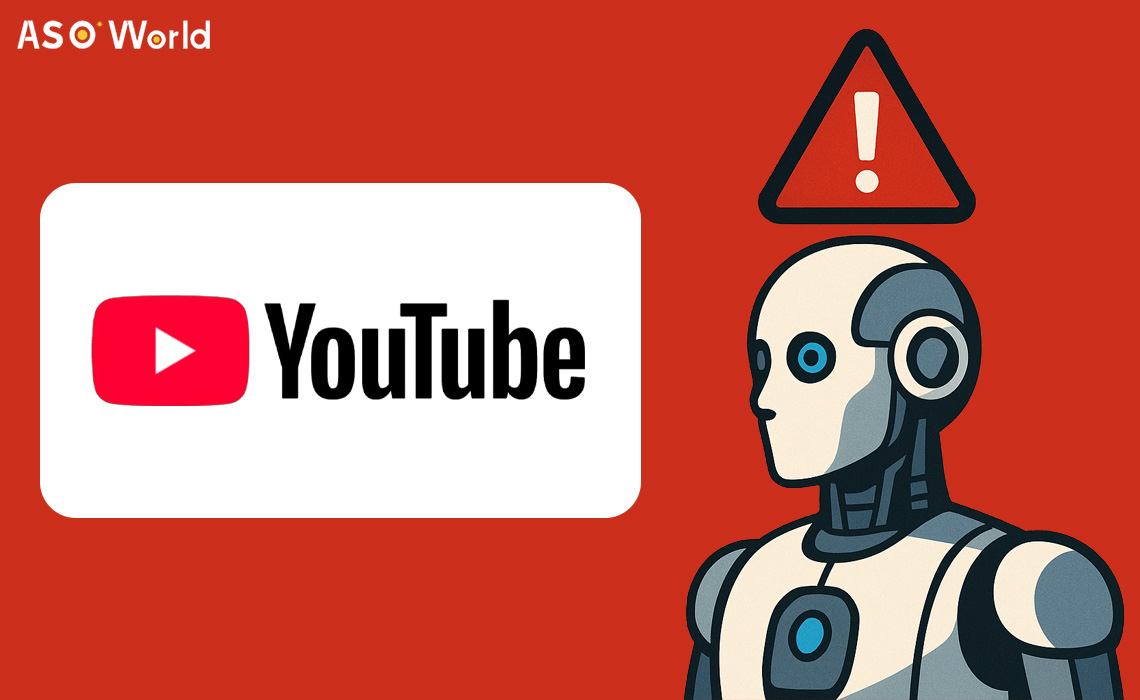YouTube, a leading video-sharing platform, is under fire for secretly applying artificial intelligence (AI) enhancements to user-uploaded videos without creator consent.
Reports reveal that these changes, including clarity improvements and color corrections, have sparked widespread criticism among creators and viewers.
The controversy, emerging in early 2025, highlights concerns about transparency, authenticity, and the ethical use of AI in content creation.
AI Video Editing Sparks Controversy
Unannounced Enhancements Fuel Outrage
YouTube's undisclosed use of AI to enhance video clarity, audio, and visuals has drawn significant backlash.
Creators, unaware of these alterations, argue that such changes compromise their artistic vision.
The issue mirrors a 2025 Netflix controversy where AI-remastered sitcoms produced distorted visuals, raising fears about YouTube's modifications undermining content integrity.
Discussions on social media reveal creator frustration, with some labeling the platform as "flooded" with AI-generated content, further eroding trust.
Ethical Concerns and Deepfake Risks
The ethical implications of AI video editing are profound.
Beyond consent, the use of deepfake technology—capable of creating realistic but false depictions—raises concerns about misinformation and non-consensual content, particularly pornographic deepfakes targeting women.
YouTube's privacy complaint process allows flagging such content, but enforcement remains inconsistent.
Professor Jill Walker Rettberg notes that AI-mediated content blurs the line between reality and fabrication, threatening viewer trust.
YouTube's AI Tools and Policies
AI Editing Tools in Use
YouTube employs proprietary AI tools for tasks like automated dubbing, thumbnail generation, and video enhancements, alongside third-party tools such as DeepFaceLab, ReFace, and Synthesia.
These tools streamline content creation but risk producing artifacts or inauthentic outputs.
Google's Veo, for instance, generates lifelike short videos but struggles with longer formats.
Creators value the efficiency but criticize YouTube's lack of transparency in applying these tools.
Policy Responses and Challenges
YouTube's policies require creators to disclose AI-generated content since November 2023, with non-compliance risking account suspension or demonetization.
The updated YouTube Partner Program (YPP) rules, effective July 15, 2025, target "mass-produced" AI content, emphasizing authenticity.
However, creators face challenges navigating these rules, as low-effort AI videos risk demonetization, while inconsistent enforcement of privacy policies leaves deepfake concerns unaddressed.
Impact on Creators & the Platform
Creator Challenges and Opportunities
AI editing offers efficiency, enabling faster production and multilingual accessibility, but it also threatens creators' monetization and visibility.
The influx of AI-generated "slop" saturates the platform, making it harder for original content to stand out.
Creators on Reddit's r/youtube express concerns about algorithmic penalties, while others, praise AI's creative potential.
The balance between automation and authenticity remains a key challenge.
Algorithmic and Viewer Implications
AI-enhanced videos may boost engagement, improving algorithmic rankings, but mass-produced content risks downranking under YPP guidelines.
YouTube's AI-driven age-verification restricts ad revenue for teen-targeted videos, impacting creators.
Viewer trust is also at stake, as undisclosed AI edits and deepfakes undermine content authenticity, potentially reducing long-term platform credibility.
Alternatives & Future Outlook
Creators seeking alternatives can use traditional tools like Adobe Premiere Pro or DaVinci Resolve for precise control or adopt hybrid solutions like Canva for simplified editing.
Emphasizing original storytelling aligns with YouTube's push for authenticity, helping creators avoid algorithmic penalties.
ommunity collaboration also offers a human-centric approach to content creation.
Editor's Comments
YouTube's secret AI enhancements reflect a broader tension in the tech industry: balancing innovation with ethical responsibility.
While AI streamlines content creation, its unannounced use risks alienating creators, the platform's lifeblood.
The controversy underscores the need for opt-in mechanisms and clearer policies.
Looking ahead, YouTube must address enforcement gaps, particularly for deepfakes, to restore trust.
The platform's ability to integrate AI transparently will determine its long-term success in a competitive digital landscape.
As AI adoption grows, regulatory scrutiny, as seen in California's 2024 deepfake laws, may further shape YouTube's approach.
Frequently Asked Questions (FAQs)
What are YouTube's AI video enhancements?
YouTube uses AI to improve video clarity, audio, and visuals, but these changes were applied to select videos without creator consent, sparking backlash.
Why are creators upset about AI editing?
Creators criticize the lack of transparency, loss of artistic control, and potential algorithmic penalties for AI-generated content, as discussed on X and Reddit.
What are the ethical concerns with AI video editing?
Concerns include consent violations, deepfake misinformation, non-consensual content, and erosion of viewer trust, as noted by experts like Jill Walker Rettberg.
How does YouTube regulate AI content?
Since November 2023, creators must disclose AI use, and updated YPP rules (July 2025) target inauthentic AI content, though enforcement is inconsistent.
What are deepfakes, and why are they controversial?
Deepfakes are AI-generated videos altering appearances or voices, raising concerns about misinformation and non-consensual content, especially pornographic material.
How does AI affect YouTube's algorithm?
AI-enhanced videos may boost engagement but risk downranking if deemed low-effort, while age-verification systems limit ad revenue for some creators.
What alternatives exist to AI video editing?
Creators can use traditional tools like Adobe Premiere Pro, hybrid solutions like Canva, or focus on original storytelling to maintain authenticity.
Will YouTube change its AI policies?
While no official changes are confirmed, growing backlash and regulatory trends, like California’s deepfake laws, may push YouTube toward stricter transparency measures.

